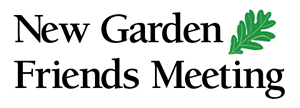Reading from Meeting for Worship on July 3, 2022 / Britain Faith and Practice / Carl Heath, 1922
Social problems, like religions, when we do our best and earnestly desire the highest, are often seen in the wrong perspective due to limited horizon, the lack of essential knowledge, the impossibility of dealing with them in any genuinely detached sense, or of seeing the wood for the trees.
Such conditions present no case for a stern refusal to look at compromise. We can but arrive at the relatively higher, and that is reached more often by a spirit of co-operative search for the best, a readiness to give and take and understand another view with a clear sense that none will show absolute wisdom.
It is not, I am persuaded, political compromise that is the enemy of religion, but the method by which such compromise is reached, the method, that is falsely called democratic, of reaching an agreed end by immoral surrender of principle, and by voting down and coercing one another. There is a wide difference between the Quaker method, which includes – but transcends compromise, and the method of a party deal and a political coercion.
Interpretation and language updates to reading done by Marcy Maury; Social problems, like disagreements in religious congregations are not resolved easily, even when all sides have the best possible intentions. Misunderstandings happen for many reasons: not having a complete understanding of the issues, being short-sighted or having a limited vision of the problem, of not being able to rise above the emotional connections to the outcome, or just getting lost in the details.
These limitations should not stand in the way of undertaking sincere efforts toward resolution.
The effort to arrive at the best possible corporate outcome is through an agreement to seek together with open minds, a willingness to give and take, and an openness to alternative understandings. I believe it is not compromise itself that is flawed, but the method used to reach compromise that is the problem. Compromise is incorrectly labeled “democratic ‘ when a resolution is reached by one group giving up their position, abandoning their beliefs because they have been overpowered or out-voted by opposing forces. This is not compromise – it is coercion. There is a tremendous difference in this kind of “democratic decision” and the decisions reached through the Quaker method – that includes compromise but transcends compromise. A Quaker process that holds the best possible resolution achievable through mutual respect, patient listening, and a healthy dose of kindness.

